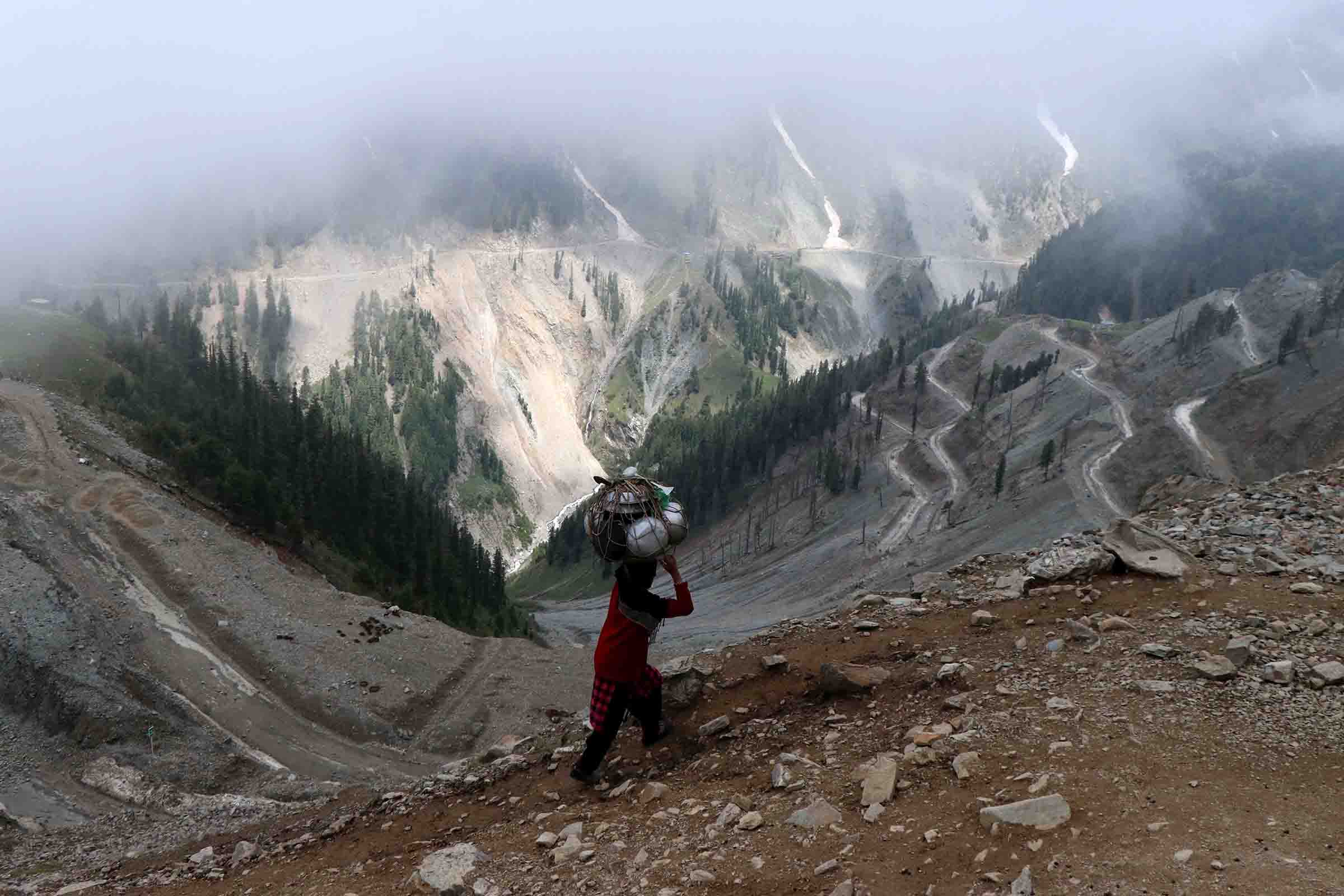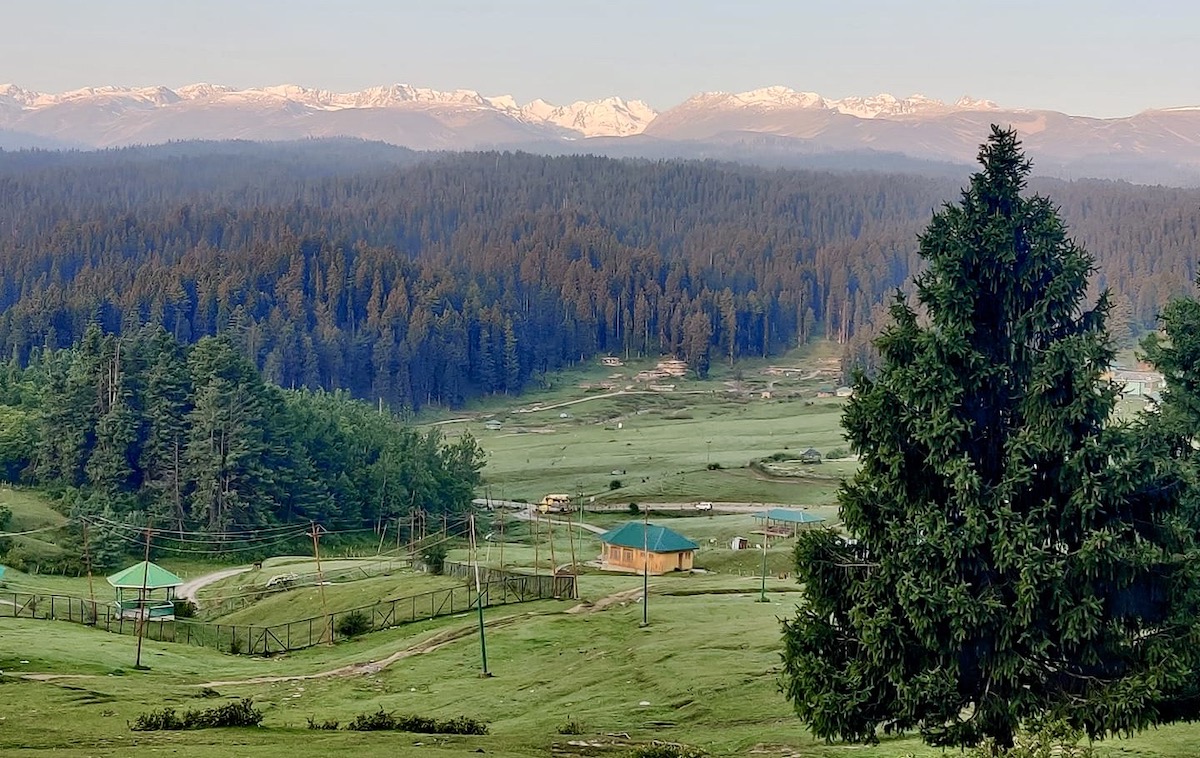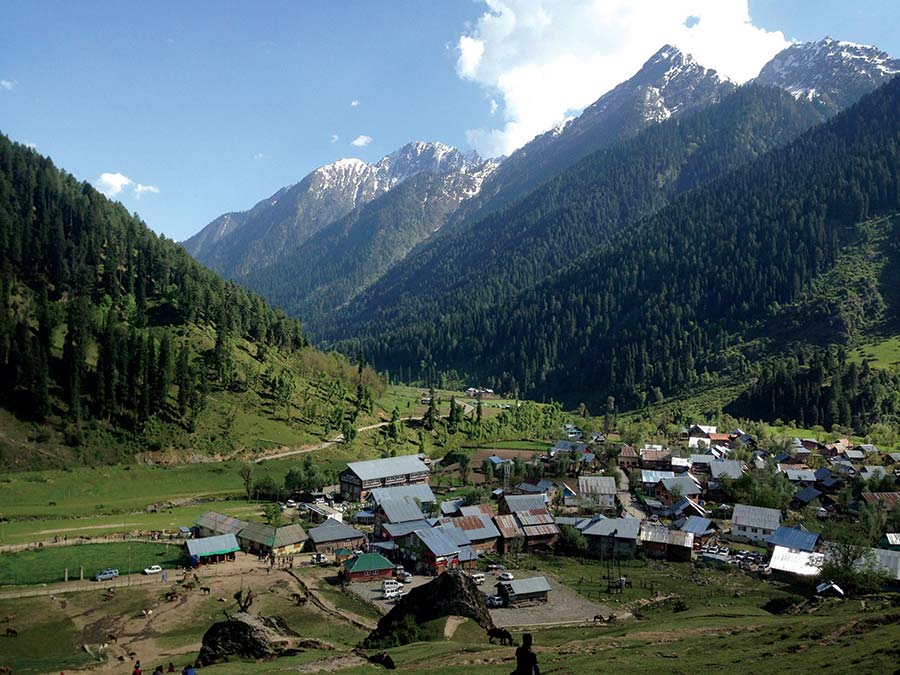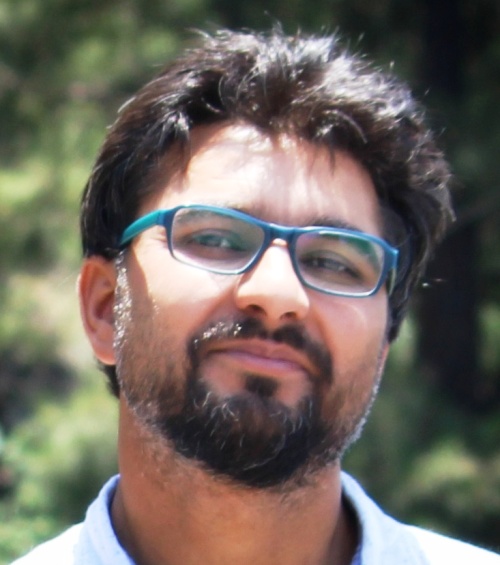by Dr Junaid Jazib
We originated within nature, as its finest creation, and evolved under its subtle influences. Long before we organised into complex societies, we shared an emotional and rational relationship with our environment, aiming for a harmonious existence.

Nature, a system of interconnected systems, is an amazing cradle that fosters life in its countless forms. Comprising a vast tapestry of matter, energy, forces and conditions, it works in harmony to sustain the gamut of life on Earth. It remains a living, vibrant sanctuary that supports, protects, and envelops us within its nurturing embrace.
Our connection with nature stretches back through the annals of time, as old as our own existence. We originated within nature, as its finest creation, and evolved under its subtle influences. Long before we organised into complex societies, we shared an emotional and rational relationship with our environment, aiming for a harmonious existence.
We, like any other form of life, are an assemblage of natural elements arranged in a specific order. Our very makeup is a reflection of nature, not merely as an abstract concept but as a tangible amalgamation of natural materials and energy. The carbon, calcium, or phosphorus found in the soil today will constitute a part of our flesh tomorrow. Hydrogen atoms that form rainwater molecules may soon flow through our veins. Oxygen released by an oak tree might someday circulate within us. All our nourishment, including inner peace, spiritual enlightenment, and aesthetic joy, stems from nature. We have cultivated a profound sense of unity with it, evident in our spirituality, traditions, customs, art, culture, wisdom, and scientific progress. We learned from nature, revered it, and cherished it. Natural elements were held sacred, and all living beings were considered part of one extended family.
However, the onslaught of human greed and thoughtlessness, disguised as modern society, has severed our connection with nature. In this tumultuous rush of the contemporary world, we often find ourselves detached from the natural rhythms that once defined human existence. The relentless pursuit of progress and the ever-growing reliance on technology have led us astray, disconnecting us from the very essence of our being – our intrinsic bond with nature. Exploitation has replaced respect and affection.
Amidst the concrete jungles and the ceaseless cacophony of urban life, the whispers of nature often go unheard. The lush greenery that once surrounded our ancestors, providing solace and sustenance, has been overshadowed by towering skyscrapers and bustling cityscapes. The vivid hues of dawn, the rustle of leaves in the wind, the gentle lapping of waves against the shore – these natural melodies have been drowned out by the cacophony of urban life. Our senses, once finely attuned to the subtleties of the natural world, have grown dull, numbed by the incessant bombardment of artificial stimuli.

But we forgot to diagnose that even the slightest disturbance in nature reverberates in our lives. Our actions towards nature inevitably come back to us. Ruthless exploitation of natural resources has inflicted permanent damage upon our environment. Vital components of nature, such as air, water, and soil, have been contaminated with pollutants. The land has been stripped of its lush greenery and rich biodiversity, transforming a once-natural paradise into an unsafe, desolate world. The consequences of this chaos and distortion in nature must be borne by us and the generations to come. Food and water scarcity, disease outbreaks, extreme weather events, depleting rivers, rising seas, floods, and droughts are all symptoms of a disturbed and distorted natural order.
The fact of the matter is that despite our technological advancements and the illusion of detachment from nature, our existence and well-being remain intricately linked to it. We need nature for our very survival. We feel prosperous and triumphant when nature bestows its resources upon us but utterly vulnerable when it unleashes its fury.
In our current state, it is imperative that we rekindle our connection with nature urgently for our survival and a brighter future. A growing awareness of the detrimental consequences of our detachment from nature has, luckily, sparked a global movement to heal our relationship with nature. From community-driven reforestation projects to innovative urban green spaces, the efforts to bring nature back into our lives are gaining momentum. The recognition of the therapeutic benefits of spending time in nature has led to the integration of green spaces in urban planning, fostering environments that nurture both physical and mental well-being.
Moreover, the acknowledgement of nature’s invaluable role in sustaining life on this planet has catalysed a shift towards sustainable practices and ecological consciousness. The resurgence of organic farming, the promotion of renewable energy sources, and the advocacy for wildlife conservation are all manifestations of a collective awakening to the urgency of preserving our natural heritage.
Yet, this revival needs to go beyond mere conservation efforts and ecological initiatives. It necessitates a profound transformation in our perception of nature, prompting us to recognise ourselves as an integral part of the intricate web of life. We must acknowledge that we are not separate entities, but interconnected threads woven into the fabric of the natural world. Our fates are intertwined, and the well-being of the planet is intricately linked to our own.
Embracing this interdependence calls for a fundamental shift in our values and priorities, compelling us to cultivate a deep reverence for nature and all its inhabitants. Our generation, often confined to air-conditioned rooms and tethered to tablets and computers, has lost touch with the visceral experience of nature. It is time to rediscover our emotional bond with nature and pass it on to future generations.
In fostering this reconnection, we must also rediscover the intrinsic value of the natural world beyond its utilitarian significance. Nature is not merely a resource to be exploited or a backdrop for human endeavours; it is a source of inspiration, wonder, and spiritual nourishment. It beckons us to delve into its mysteries, to contemplate its grandeur, and to derive solace from its timeless wisdom. The intricate ecosystems, the breathtaking landscapes, and the diverse life forms that adorn this planet are not only essential for our physical survival but also integral to our emotional and spiritual fulfilment.

To revive our bond with nature, we must embark on a journey of self-discovery, exploring the depths of our own innate connection with the natural world. We must reconnect with the rhythms of nature, attuning ourselves to its cycles and embracing its impermanence. We must learn to listen to the ancient wisdom that echoes through the rustle of leaves and the ebb and flow of tides. By immersing ourselves in the beauty and majesty of the natural world, we open ourselves to a profound sense of awe and humility, realising our place within the intricate tapestry of life.
As we strive to revive our bond with nature, we must also acknowledge the imperative to nurture and protect it. We must become stewards of the Earth, guardians of its fragile ecosystems, and champions of its biodiversity. Through collective action and individual responsibility, we can foster a culture of sustainability and conservation, ensuring that the bounties of nature are preserved for future generations.

In this endeavour, the revival of our bond with nature becomes a catalyst for personal growth, societal harmony, and global sustainability. It prompts us to re-evaluate our relationship with the natural world and instils in us a profound sense of gratitude, humility, and interconnectedness. It invites us to embark on a transformative journey, one that leads us back to our roots and fosters a deeper understanding of our place within the intricate tapestry of life. As we embrace this journey, we embark on a path of rediscovery, nurturing the seeds of harmony and cultivating a world where humanity and nature coexist in perfect balance.
As we stand at a critical juncture in human history, let us return to nature with open hearts and reconnect with it. We need nature for our very survival, and it eagerly awaits us in its benevolent embrace. Let us make space for it in our thoughts and actions. Let us transcend the intellectual and logical realms and embrace spirituality to deepen our connection with nature. Let us revel in the joy of being an integral part of it.
(The author is heading the Environmental Science department at the Government Post Graduate College, Rajouri. Ideas expressed in the write-up are personal.)















